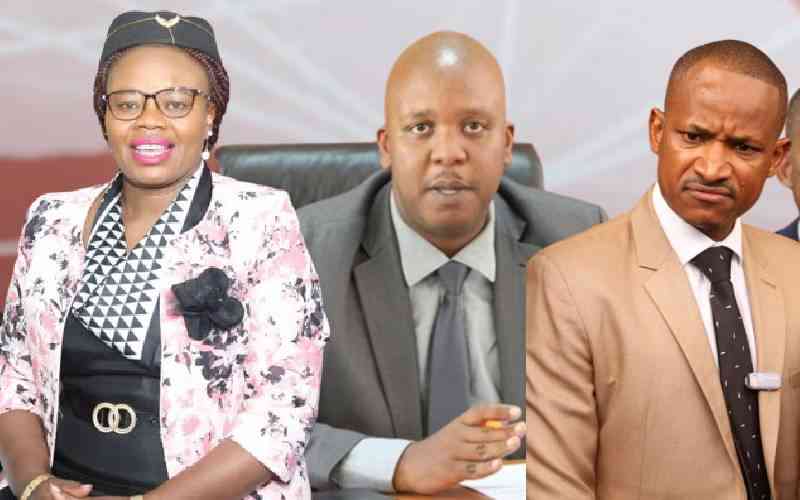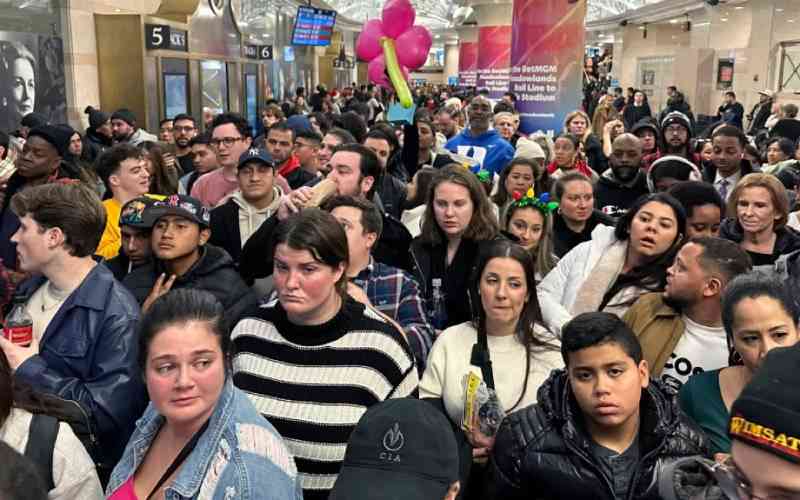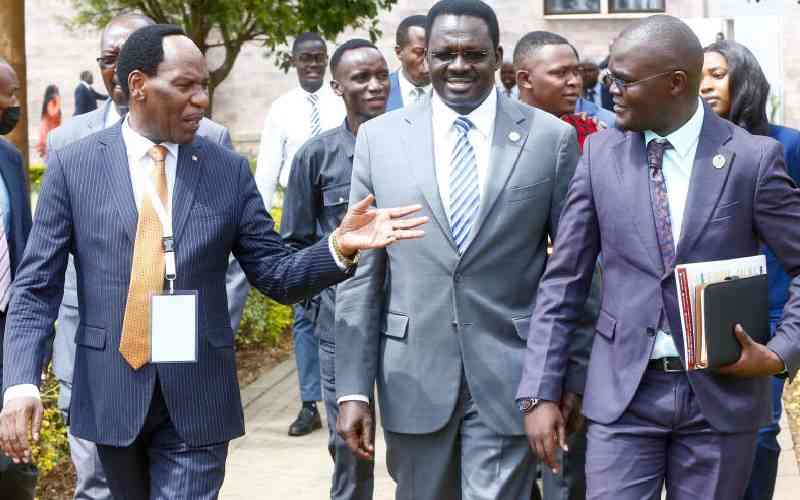I was walking lazily towards Old Nyati’s house early on a Saturday morning when I heard someone shouting for me to stop. I looked behind to see an obese man walking hurriedly and waving his hands in the air. I stopped, wondering who the stranger was. “My name is Dodge Dadalwa,” he said, gasping for breath. He was sweating profusely. I could tell he was not used to much physical exertion except, it was clear, when he was feeding.
“I am a very important politician from Kenya,” he wheezed out. I was not surprised by the self-important introduction. In our village, we had become used to the pathological hubris of Kenyan politicians. “Feel honoured,” continued Dodge, “to show this VIP to Old Nyati’s house... I want to spend a few days in your village pondering the uproar caused by my pronouncement a few days ago.”
For the rest of the way, I listened to Dodge tell me how great he was. “When I was in charge of Nairobi, I brought changes that will go down in the annals of history as some of the most spectacular in Africa.”
At Old Nyati’s compound, he greeted those already gathered with a clenched fist, shouting: “Attention, villagers, Dodge the Great from Kenya has graced your occasion with his presence.”
Old Nyati welcomed the great man to the village, saying he would get the privacy he desired to think through his issues. Then suddenly, Dodge commenced a strange dance routine, twisting his corpulence this way and that way while tracing a semi-circle.
It seemed that the great man’s thinking process was greatly aided by food. In the morning, he would be seen in his yard at the edge of the village holding his head on his palm while using the other hand to scoop generous amounts of food from a sufuria, a habit that he would sustain until the afternoon. Then he would recline in the hammock to think some more as he took a long nap. In the evening, pleased with the amount of work he had done, he would begin his strange routine dance and invite passersby to join.
Once, as I passed by his compound, he hailed me to come over and join the dance. “Twist, young man, twist,” the great one urged. Afterwards, we sat down to rest on the bench on his veranda. “How is your thinking going, sir?” I asked him.
“The eating, er, I mean the thinking has been excellent.... I have eaten, oops, sorry, I have thought about the issue and come to the conclusion that the criticism of my pronouncement was unjustified,” said Dodge in a happy voice.
Reports of his pronouncement had reached our village, and as usual we had wondered in shock why Kenyan politicians so maniacally courted ethnic violence.
“But don’t you think, sir,” I pursued, “that calling for blood to be spilled is dangerous talk given Kenya’s history of ethnic violence?”
“Look,” said Dodge the Great calmly, “I was quoted out of context... I was talking about donating blood to the Red Cross.” He paused, looking into the space in front of him.
“Actually, I used the wrong word at the heat of the moment, I meant to say ‘donate’, not ‘spill’...” He laughed a little. “...You know the Kenyan media with their propensity to scandalise politicians...That is why our MPs wanted a law to protect us from being scandalised...”
As he spoke and made light of a serious matter, I wondered why Kenya was almost fatalistically moving towards violence. Unlike elsewhere in the world, the most popular politicians are not the most eloquent, or the ones with great ideas about how to transform Kenya socially and economically, or the ones with a history of selfless service. It was the stone throwers, small time peddlers of ethnic hate or lying thieves. The easiest way to become an MP in Kenya is to ignore the real socio-economic problems and spin myths about the intellectual or moral deficiencies of this or that community or how this or that community was the cause of the problems facing this or that community. Why, I wondered, did the leaders of major political parties not distance themselves from such people? But most intriguing of all was why Kenyan people are quick to condemn people from other communities who spew hate and incite violence, but embrace as heroes those from their community who do the same.
 The Standard Group Plc is a
multi-media organization with investments in media platforms spanning newspaper
print operations, television, radio broadcasting, digital and online services. The
Standard Group is recognized as a leading multi-media house in Kenya with a key
influence in matters of national and international interest.
The Standard Group Plc is a
multi-media organization with investments in media platforms spanning newspaper
print operations, television, radio broadcasting, digital and online services. The
Standard Group is recognized as a leading multi-media house in Kenya with a key
influence in matters of national and international interest.
 The Standard Group Plc is a
multi-media organization with investments in media platforms spanning newspaper
print operations, television, radio broadcasting, digital and online services. The
Standard Group is recognized as a leading multi-media house in Kenya with a key
influence in matters of national and international interest.
The Standard Group Plc is a
multi-media organization with investments in media platforms spanning newspaper
print operations, television, radio broadcasting, digital and online services. The
Standard Group is recognized as a leading multi-media house in Kenya with a key
influence in matters of national and international interest.









